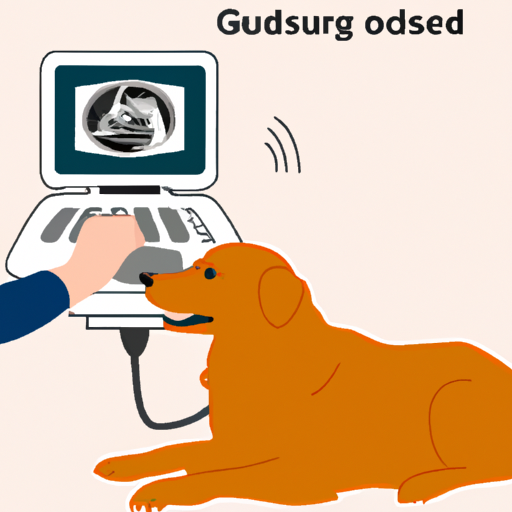As a caregiver, you constantly look out for the well-being of your beloved pet. One of the most effective ways to keep an eye on your dog’s health is through ultrasound screenings. These medical procedures are essential in diagnosing various health conditions. However, the cost of these screenings often raises concerns among pet owners. This guide will provide you with detailed insights on how much ultrasounds for dogs cost and everything else you need to know.
1. What is an Ultrasound for Dogs?
An ultrasound, also known as sonography, is a non-invasive diagnostic imaging technique that uses sound waves to create a visual representation of your dog’s internal organs. Unlike X-rays, ultrasounds do not use radiation, making them safe for your furry friend.
This medical procedure is often used to diagnose conditions in the heart, liver, kidneys, bladder, and other organs. It can reveal abnormalities such as tumors, cysts, inflammations, or obstructions.
2. Factors Influencing the Cost of Dog Ultrasounds
The cost of an ultrasound for a dog can vary widely, depending on several factors:
- Location: Vets in urban areas typically charge more than those in rural areas due to higher operational costs.
- Experience and expertise: A vet with specialized training may charge more than a general vet.
- Complexity of the procedure: A comprehensive ultrasound that looks at multiple organs will cost more than an ultrasound focusing on a single area.
- The health of your dog: If your pet is in critical condition and requires immediate attention, the cost could increase.
Here is a rough estimate of the costs you might expect:
| Factor | Cost |
|---|---|
| Basic Ultrasound | $300 – $600 |
| Comprehensive Ultrasound | $600 – $1000 |
| Emergency Ultrasound | $1000 – $2000 |
3. The Process of Dog Ultrasounds
Understanding the process can help demystify what you’re paying for. Here are the general steps:
- Preparation: Your vet might ask you to fast your dog before the procedure to ensure clear images.
- Sedation: While not always necessary, some dogs may require sedation to stay calm during the procedure.
- Procedure: The vet will apply a special gel on your dog’s belly to improve the ultrasound waves’ transmission. They will then move a handheld device called a transducer over the area to capture images.
- Follow-Up: The vet will discuss the findings with you and suggest any necessary treatments or interventions.
4. Why Ultrasounds for Dogs are Important
Despite the cost, ultrasounds are a vital diagnostic tool for ensuring the health and well-being of your pet. Here are a few reasons why:
- They can detect health problems early, allowing for timely treatment.
- They provide a non-invasive and painless way to examine your pet’s internal organs.
- They can guide procedures like biopsies, making them more accurate and safer.
- They can monitor the progress of a known health condition.
5. How to Manage the Cost of Dog Ultrasounds
While ultrasounds can be expensive, there are ways to make them more affordable:
- Pet insurance: Some pet insurance plans cover diagnostic tests like ultrasounds. It’s worth checking your policy or considering buying one if you haven’t already.
- Veterinary clinics: Some veterinary schools or non-profit clinics offer lower-cost services.
- Payment plans: Some vets offer payment plans that allow you to spread the cost over time.
FAQ
Q: Are ultrasounds safe for dogs?
A: Yes. Ultrasounds use sound waves, which are non-invasive and safe for dogs.
Q: How long does a dog ultrasound take?
A: An ultrasound can take anywhere from 30 minutes to an hour, depending on the complexity of the procedure.
Q: Can I stay with my dog during the ultrasound?
A: This depends on the vet’s policy. Some allow owners to stay, while others may not due to space or distraction concerns.
Q: How often should my dog get an ultrasound?
A: This largely depends on your dog’s age, breed, and health condition. Your vet can provide the best advice.
Remember, as a caregiver, your pet’s health should always be a priority. While the cost of ultrasounds can be high, it’s a small price to pay for early detection and treatment of potential health problems. As the saying goes, “prevention is better than cure”, and in the world of pet health, ultrasounds play a significant role.



